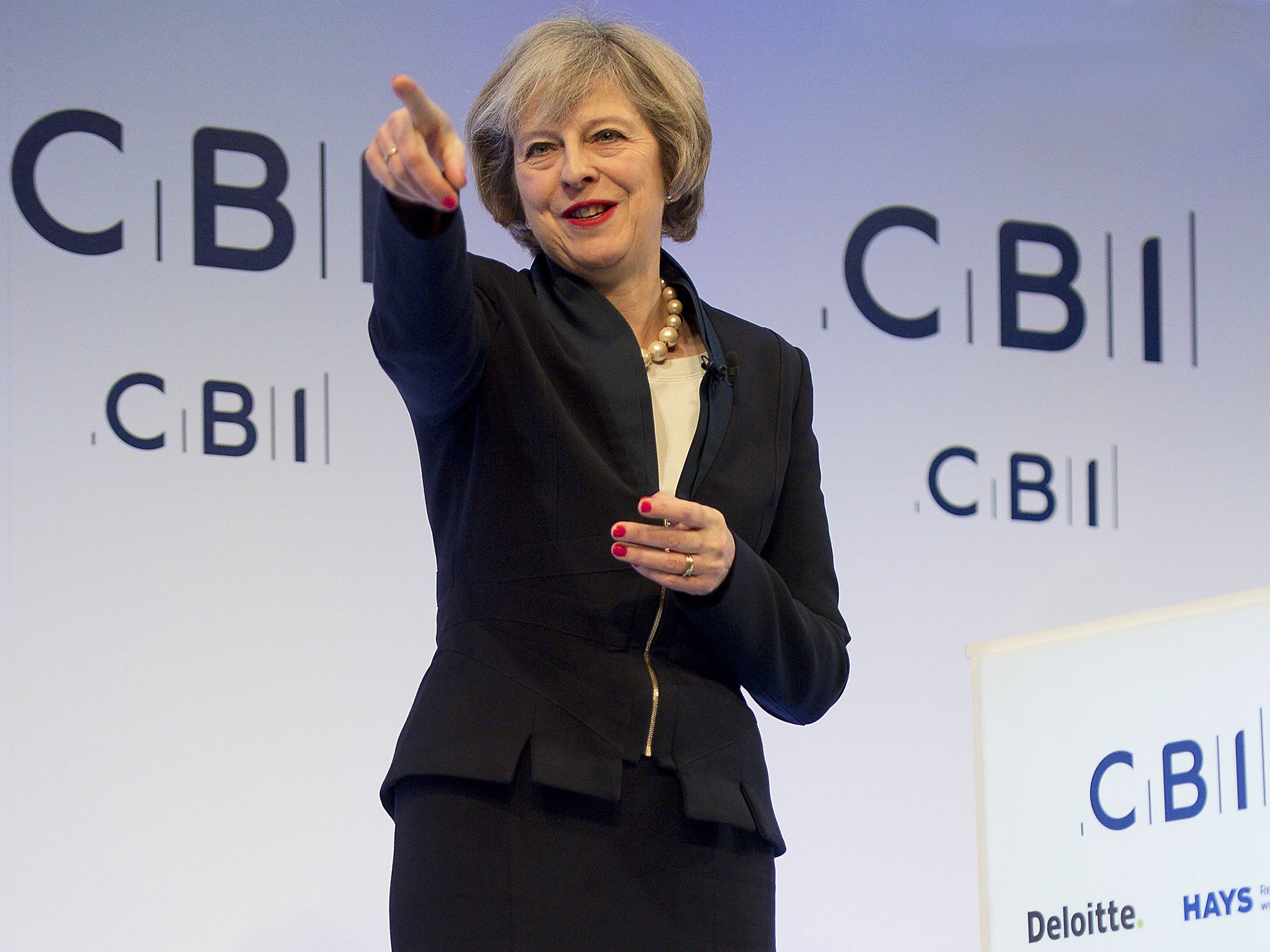Theresa May is right to revive our industrial strategy, but good intentions must be matched by firm policies
Ms May must not allow her determination to reduce immigration blind her to the need to recruit the best in the world in order to ensure the UK is the best in the world on innovation

Your support helps us to tell the story
From reproductive rights to climate change to Big Tech, The Independent is on the ground when the story is developing. Whether it's investigating the financials of Elon Musk's pro-Trump PAC or producing our latest documentary, 'The A Word', which shines a light on the American women fighting for reproductive rights, we know how important it is to parse out the facts from the messaging.
At such a critical moment in US history, we need reporters on the ground. Your donation allows us to keep sending journalists to speak to both sides of the story.
The Independent is trusted by Americans across the entire political spectrum. And unlike many other quality news outlets, we choose not to lock Americans out of our reporting and analysis with paywalls. We believe quality journalism should be available to everyone, paid for by those who can afford it.
Your support makes all the difference.At last month’s Conservative Party conference, Theresa May promised that plans for workers to be represented on company boards would be published by the end of the year “because we are the party of the workers”. Her statement provoked a backlash and fierce lobbying campaign by business leaders. When the Prime Minister addressed the Confederation of British Industry’s annual conference in London on Monday, she sounded more like the leader of the old party of big business. Although Downing Street denied a U-turn, an emollient Ms May delighted her hosts by saying that the Government would not impose workers on boards, and that it would be for companies to decide what works best (advisory panels or consultative works councils, for example).
It is a worrying sign that Ms May was so easily be blown off a course she set, hardly the Thatcher-style strong leadership she appeared to offer. Her retreat was unnecessary. Putting workers on boards would not be anti-business; their representatives play a valuable role in countries such as Germany and Sweden. Ms May’s move undermines her promise to champion the working and “just about managing” classes. Hoping that employers voluntarily give their workforce a voice is unlikely to prove enough. While some companies will do the right thing, others will not.
Ms May’s change of heart is at odds with her commitment to a more interventionist industrial strategy, too – an approach that has come and gone over the years. New Labour left it very late in the day, but Peter Mandelson brought in some welcome changes. Vince Cable, the next Business Secretary, tried to keep them alive during the Coalition but faced opposition from Conservatives. Bizarrely, his free-market successor, Sajid Javid, banned the use of the phrase “industrial strategy”.
Reviving it is to be welcomed, as is Ms May’s warning to business that it must change to restore public faith in globalisation. But, so far, the Prime Minister’s good intentions have not been matched by firm policies. When her strategy is unveiled shortly, it should include a public interest for takeovers by foreign firms or when company pension schemes might be at risk.
The announcement by Ms May that government spending on research and development will rise by £2bn a year by 2020 is a wise preparation for the post-Brexit era. But EU-funded science projects could be at risk and even after the higher spending Britain could still lag behind its competitors. Crucially, Ms May must not allow her determination to reduce immigration blind her to the need to recruit the best in the world in order to ensure the UK is the best in the world on innovation.
The Prime Minister had some reassuring words on the CBI’s call for a transitional EU deal to prevent a “cliff edge” of regulations and tariffs when Brexit happens after two years of negotiations. Many Conservative MPs oppose an interim deal and demand a risky clean break, even if that means resorting to the World Trade Organisation’s tariff regime. Ms May should face them down.
At the CBI conference, the Prime Minister again kept her Brexit cards very close to her chest. Her new industrial strategy will have huge limitations until business gets what it needs most – certainty. That commodity is in very short supply; worryingly, five months after the referendum, the Government still has no plan for Brexit.
Join our commenting forum
Join thought-provoking conversations, follow other Independent readers and see their replies
Comments